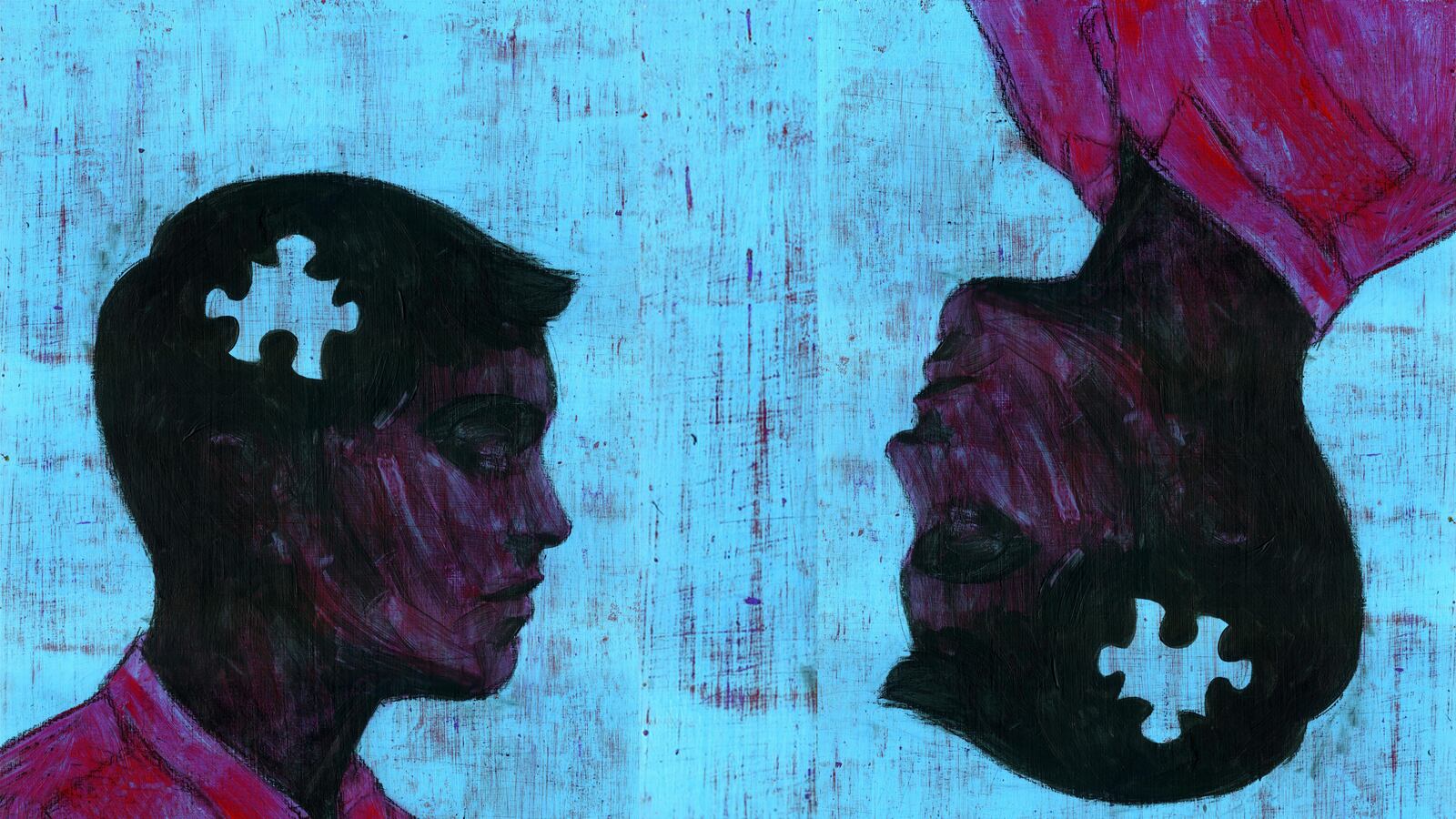When Michael Thomas Boatwright, 61, was found unconscious in a Palm Springs, California, motel on February 28, no one would have ever expected what happened next. As Michael awoke in the emergency department of Desert Regional Medical Center, he claimed his name was Johan Ek and that he spoke only Swedish, he failed to recognize his son, and most important, he couldn’t even recognized himself. A baffling mystery of forgotten identity, Boatwright continues to stump the medical community and surprise the world with each new discovery.

Over the last several months, doctors and investigators have pieced together the elusive puzzle of Boatwright’s life and along the way have attempted to answer why he is somehow unable to remember any of it. Having been raised in Florida, Boatwright served in the Navy in the early 1970s. After leaving the Navy, he traveled to Sweden, where friends say he learned to speak Swedish. Investigators recently discovered that Boatwright has been married twice, has a son, and spent much of the last 14 years teaching English in China and Japan. And even more recently, Boatwright was discovered to have a sister living in Louisiana.
When police found Boatwright he had a duffel bag full of clothes, five tennis rackets, two cellphones, and old photos and IDs identifying him as Michael Boatwright. His unexplained appearance in Palms Springs remains a mystery. The duffel full of exercise clothes and tennis rackets suggests he may have been in town for a tennis tournament, while reports about his expiring Chinese visa may help explain his abrupt travel from Hong Kong to Palm Springs.
Doctors have concluded that Boatwright suffers from transient global amnesia (TGA); he is living in what is called a “fugue state.” In his own mind, he has separated his present self, a Swede named Johan, from his previous identity, American-born Michael Boatwright.
Let’s break down the diagnosis. Amnesia refers to a person’s inability to encode, store, and retrieve memories. In this case “transient” is attached, because most patients with this disorder make a full recovery after a period of time. The “global” in TGA tells us that the entirety of Boatwright’s memory, speech, and identity is affected.
For example, instead of partial amnesia, where he might remember that his name is Michael Boatwright but speak Swedish, in this case, he identifies himself as Johan Ek and only speaks Swedish. This adoption of an entirely different identity demonstrates the complete and global effect on his personality. The only consistent risk factor identified for TGA is older age.
The disorder is rare, effecting approximately 32 out of every 100,000 people over age 60. Afflicted patients face difficulty forming new memories, are disoriented in time, and often repetitively ask questions about their environment, a clinical feature termed the "broken record" phenomenon. Symptoms typically last one to 10 hours, but may extend to days or months on end. At initial evaluation, it is imperative that laboratory tests are performed to exclude intoxication, infection, and metabolic abnormalities, as well as brain imaging scans to exclude stroke or other causes.
Doctors have added an additional level of detail to Boatwright’s case by indicating he is living in a fugue state. A fugue state, or dissociative fugue, is a psychiatric disorder that explains many of Boatwright’s core symptoms: his new primary language, name, personality, and complete identity. A hallmark symptom of a fugue state is unexpected and abrupt travel away from home or work, such as Boatwright’s travel from Hong Kong to Palm Springs just days before he was found.
Though clinicians have yet to develop a consensus regarding the causes of TGA, its association with structural abnormalities in blood flow to the brain has been one area of intense focus. Researchers have looked for conditions such as migraine headaches, traumatic brain injury, seizure, stroke, or venous congestion in those suffering TGA. Yet so far, these studies have yielded inconclusive results. Some show that patients with TGA are nearly nine times more likely to suffer from migraines. Other studies report no correlation at all.
Environmental factors likely play a role. Research has shown that a fugue state may be induced by intensely emotional or stressful events. The resulting dissociation is a coping mechanism whereby the patient is able to escape anxiety-provoking emotions and environments.
Advancements in medical technology, particularly imaging devices, have revealed that the medial temporal lobe within the brain is often abnormal in patients with TGA. This region of the brain is intimately connected to memory and personality, but researchers remain baffled as to what causes such dramatic loss of memory and changes in personality.
So what’s the prognosis? While most patients recover within hours, some experience prolonged symptoms for days and even months. Most are able to recover their lost memories and identity, though this process of self-realization generates significant angst and fear; thus, supportive therapy and medical care is important to ensure a safe and meaningful return to baseline function. Recurrence of symptoms is unusual, although 6 to 10 percent of patients who suffer TGA experience a second or third episode.
It could be hours, days, or months before Michael Boatwright recovers his memory and embraces his former identity. He is still hospitalized and under the care of the hospital’s skilled nursing facility. He will be released when doctors deem his condition safe and social workers establish an appropriate discharge plan. Until then Boatwright continues the search for his identity online, through visits with friends, and with his recently discovered sister, trying to piece together the past 61 years of his life.






